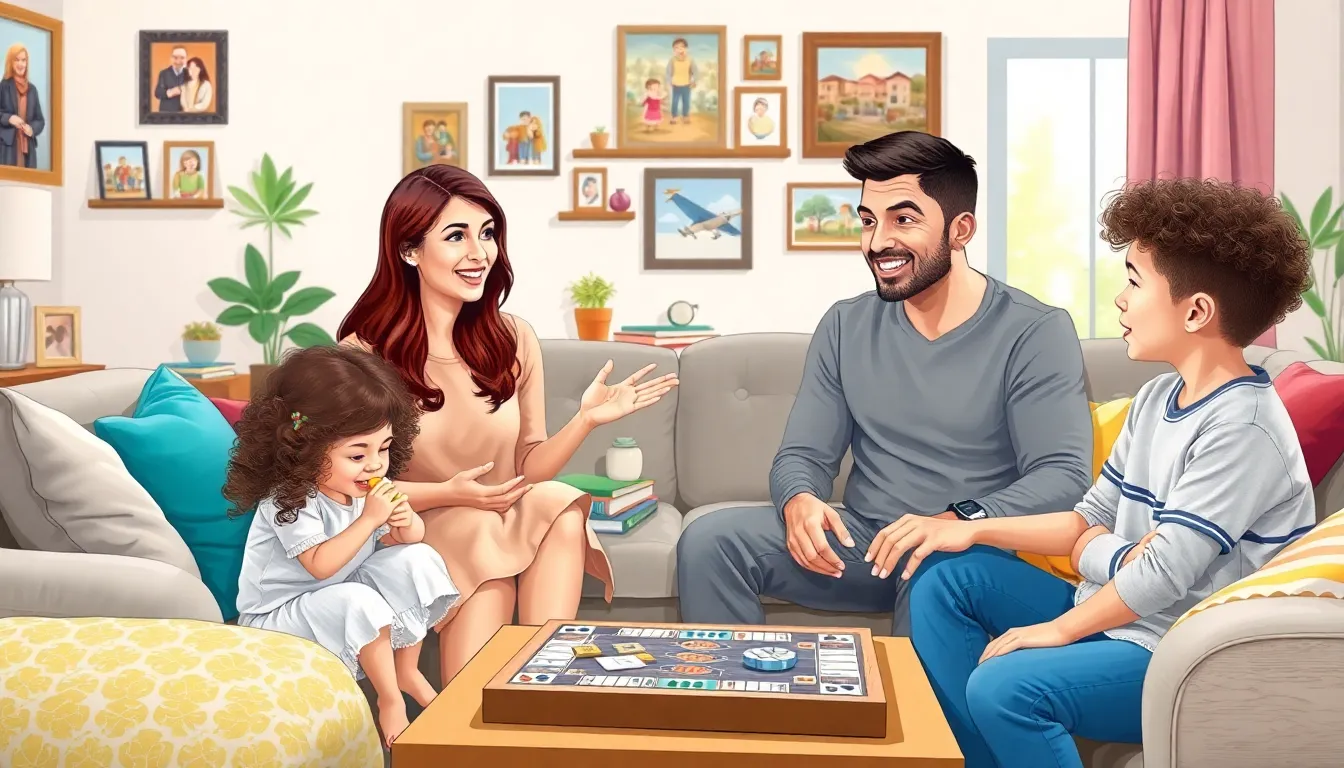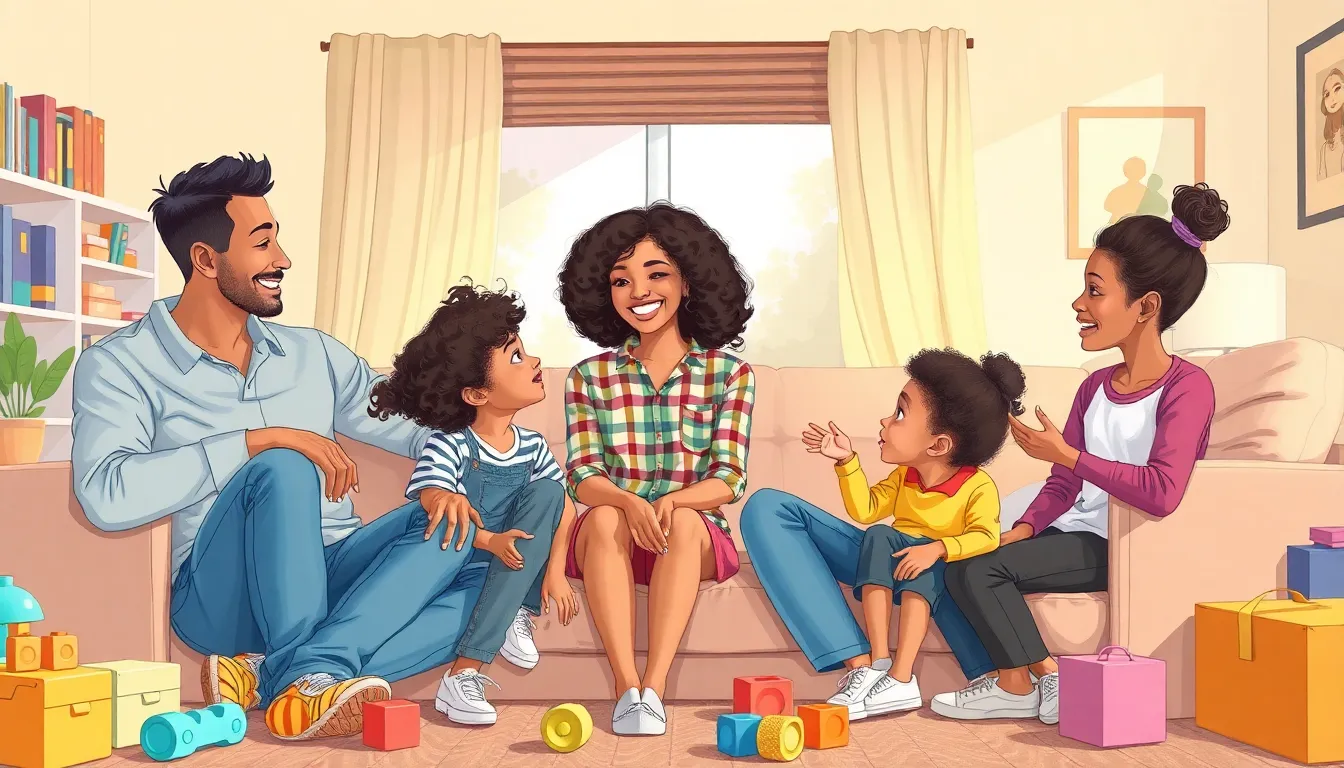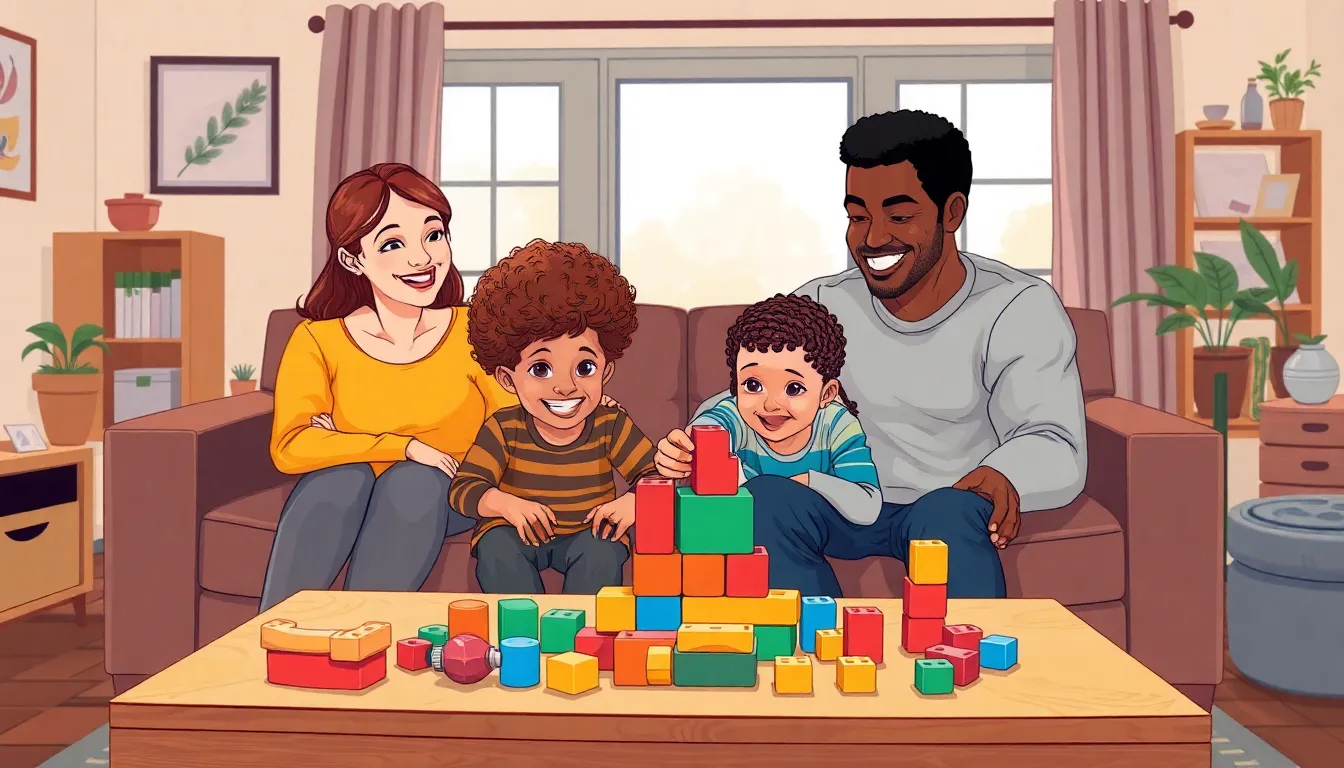The Best Fluffy Pancakes recipe you will fall in love with. Full of tips and tricks to help you make the best pancakes.

ADHD and Family Relationships: Transform Chaos into Connection for Lasting Bonds
Navigating family relationships can feel like an obstacle course, especially when ADHD enters the mix. Picture this: a family dinner where one child is bouncing off the walls while another is fixated on their phone, completely missing the chaos around them. It’s a recipe for both hilarity and frustration. Understanding ADHD’s impact on family dynamics is crucial for fostering harmony and connection.
ADHD and Family Relationships
ADHD significantly impacts family relationships. Understanding ADHD is crucial for navigating these dynamics effectively.
What Is ADHD?
ADHD stands for Attention-Deficit/Hyperactivity Disorder. It’s a neurodevelopmental disorder that affects both children and adults. Individuals with ADHD experience challenges with focus, impulse control, and hyperactivity. Diagnosis typically involves a comprehensive evaluation from a healthcare professional. Treatment options include behavioral therapy, medication, and support strategies to improve daily functioning.
Common Symptoms of ADHD
Common symptoms of ADHD include inattention, hyperactivity, and impulsivity. Inattention manifests as difficulty sustaining focus on tasks. Hyperactivity results in excessive movement or restlessness in various settings. Impulsivity often leads to hasty decisions without considering consequences. Other symptoms may include difficulty organizing tasks and forgetfulness in daily activities. Recognizing these symptoms helps families understand behavioral patterns and develop effective coping strategies.
Impact of ADHD on Family Dynamics



ADHD affects family dynamics in significant ways. Families encounter various challenges, as each member navigates the complexities of the disorder.
Challenges Faced by Families
Disorganization often leads to misunderstandings. Parents struggle with managing expectations when one child is easily distracted while another is overly energetic. Siblings may feel neglected due to constant attention on the child with ADHD. Communication breakdowns can create tension, as impulses lead to misunderstandings. Emotional outbursts might happen, frustrating both parents and children. Activities collectively undertaken may become chaotic, requiring additional patience from family members. Conflict resolution often becomes harder, with impulsivity hindering effective discussions.
Positive Aspects of ADHD in Family Relationships
ADHD can foster creativity within family interactions. Families might appreciate unique perspectives, as children with ADHD often offer innovative ideas and views. Understanding the disorder can deepen empathy among family members. Strong bonds may develop due to shared experiences of navigating challenges. Increased resilience stems from learning to cope with difficulties together. Humor may emerge during chaotic moments, easing tension and creating cherished memories. Ultimately, families can grow closer by embracing the strengths associated with ADHD, reinforcing connections.
Effective Communication Strategies
Effective communication is essential for fostering healthy family relationships, especially in families affected by ADHD. Utilizing specific strategies can enhance understanding and reduce conflicts.
Active Listening Techniques
Active listening promotes better communication among family members. Focusing entirely on the speaker helps minimize distractions. Paraphrasing statements can clarify what was said. Asking open-ended questions encourages deeper conversations. These techniques validate feelings and reaffirm respect. Practicing patience while waiting for turns to speak reduces impulsive interruptions. Family members often feel heard and valued, leading to stronger connections.
Setting Clear Boundaries
Establishing clear boundaries is vital for families managing ADHD. Defining specific roles and responsibilities helps maintain structure. Communicating expectations sets a foundation for accountability. Consistency reinforces these boundaries, which can minimize confusion. Encouraging everyone to express personal limits fosters respect and understanding. Agreeing on consequences for breaking rules helps ensure everyone is on the same page. Boundaries support a calmer family atmosphere, promoting healthier interactions.
Supporting Each Other
Supporting one another is vital in families affected by ADHD. Families can create a nurturing environment by fostering understanding and open communication.
Encouraging Open Dialogue
Encouraging open dialogue promotes honesty and transparency. Families should establish a safe space where everyone shares feelings without fear of judgment. Discussing emotions regularly allows family members to express their frustrations and joys. Active listening enhances these conversations, enabling individuals to feel heard and valued. Asking open-ended questions facilitates deeper connections, allowing everyone to articulate their experiences. Regular family meetings can also provide structure to these discussions, ensuring that ADHD remains a shared focus rather than a source of division.
Strategies for Managing Stress
Effective strategies for managing stress help maintain family harmony. Practicing mindfulness techniques, such as deep breathing or meditation, benefits both children and adults with ADHD. Setting aside time for family activities fosters connection while providing opportunities to unwind. Using visual schedules aids organization and reduces anxiety, ensuring everyone knows daily expectations. Encouraging physical activity allows for the release of pent-up energy, improving overall mood and focus. Lastly, prioritizing self-care for caregivers is essential, ensuring they have the energy and patience to support their loved ones effectively.
Conclusion
Navigating family relationships with ADHD can be challenging yet rewarding. By understanding the unique dynamics at play families can foster deeper connections and resilience. Embracing the strengths that come with ADHD can lead to creativity and empathy among family members.
Effective communication and supportive strategies are essential for promoting harmony. Families can create a nurturing environment by encouraging open dialogue and practicing active listening. Prioritizing self-care and implementing organization techniques can also enhance overall well-being.
Ultimately, recognizing the impact of ADHD on family life allows for growth and connection, transforming challenges into opportunities for stronger relationships.
